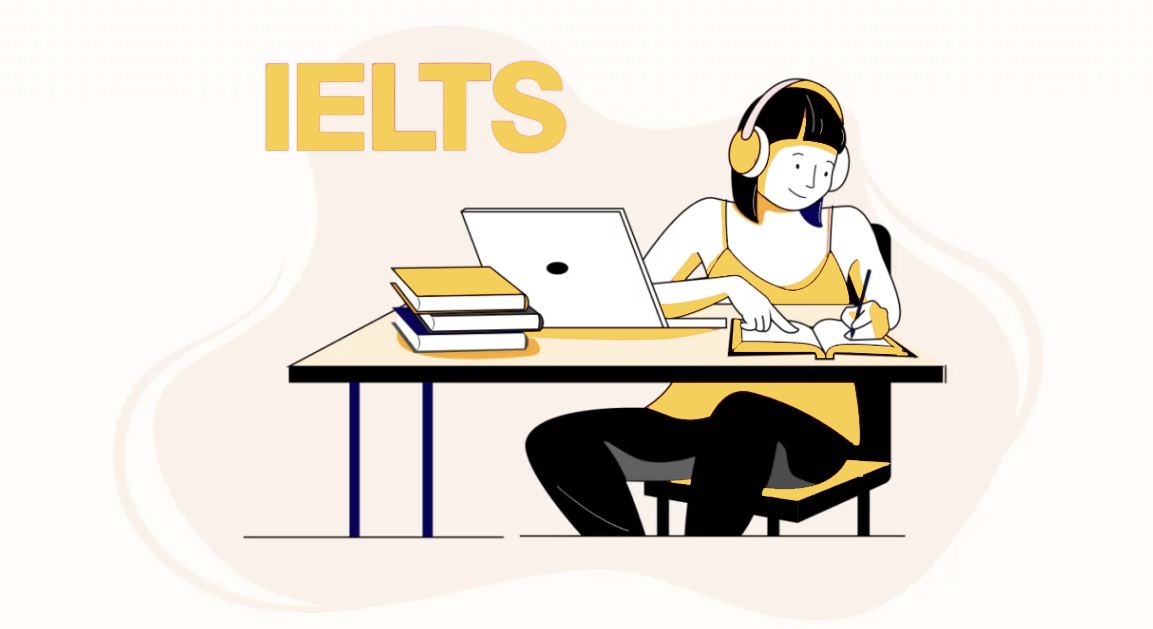The International English Language Testing System (IELTS) is designed to help you work, study or migrate to a country where English is the native language. This includes countries such as Australia, Canada, New Zealand, the UK and USA. Your ability to listen, read, write and speak in English will be assessed during the test. IELTS is graded on a scale of 1-9.
If you are looking to work, live or study in an English-speaking country, then you must be able to demonstrate a high level of English language ability. English is the third most spoken language in the world, with 379 million speakers worldwide. Able to communicate in the native language of the country you wish to work or study in, has a wide range of benefits. It is also essential for job opportunities as well as integration into the community. IELTS is the most popular test for those looking to migrate to Australia, Canada, New Zealand and the UK. Globally recognised by more than 11,000 employers, universities, schools and immigration bodies includes 3,400 institutions in the USA.


This is meant for those applying for secondary education, professionals seeking work experience and people seeking immigration in some countries like Australia, Canada, New Zealand, and the UK.
The IELTS General Training test measures your proficiency in English language in a very everyday practical context. It is suited for candidates wanting to pursue studies in a high school or a vocational training program. It is mandatory for candidates planning to migrate to Australia, Canada, New Zealand and the UK.
This class is designed for IELTS Test takers of all levels who need assistance with grammar and vocabulary for IELTS. The individual topics for the three tasks- Writing Task 1, Writing Task 2 And Speaking are suitable for skill building with expert guidance from tutors online, and for efficiency according to the Band Descriptors for a good score. A new topic/grammar concept is taken each day. Students can join the batch on any day/any week of the rolling batch.
Features:
| IELTS Test Component | Duration | Brief Description |
|---|---|---|
| Listening | 30 minutes | 4 sections, 40 times |
| Reading | 60 minutes | 3 sections, 40 times |
| Writing | 60 minutes | tasks |
| Speaking | 11-14 minutes | 3 part one-on-one conversation |
The ability of applicants to easily integrate their IELTS practice into their unique everyday routines is one of the fascinating aspects of IELTS preparation. The IELTS exam can be better prepared for by reading an English book, whether it is fiction or nonfiction, conversing casually with friends, or even watching television!
IELTS listening pattern:
The first and most crucial portion of the IELTS exam is the listening
section. There are 40 items total in these four sections of the IELTS test. It
is essential to study for each section independently when getting ready for the
IELTS.

Here are the IELTS preparation tips for the Listening section:
Some other IELTS preparation tips for the Listening section
Candidates' reading abilities are assessed in this area. In general, big
articles are given to test-takers to read before a set of questions including
multiple choice, sentence completion, summary writing, matching information,
and short-answers. Both the IELTS Academic and General tests have unique
reading sections. The material of the test is often heavier and tougher in
terms of topic and language because one must take the academic test in order to
be admitted. Here go some of the IELTS last-minute tips.
Here are the IELTS preparation tips for the IELTS Reading test:
Some other IELTS preparation tips for the Reading section
The writing section in each version of IELTS has two subsections. In the
academic test, you are required to describe a chart, graph or diagram and in
addition, write an essay expressing your point of view or argument. In the
general test, the test-taker is presented with a situation and asked to write a
letter explaining the situation along with the essay.
Here are the IELTS preparation tips for the IELTS writing test:

Part one: In the first section, the test-taker is asked a few broad inquiries about their history in education, family, personal interests, etc.
Here are some IELTS cracking tips for passing this section:
Second part: In this section, test-takers are assigned a topic and instructed to speak for at least two to three minutes, uninterrupted, about the subject. The examiner gauges the subject's knowledge and speaking abilities.
Third part: This section is crucial since the examiner will address the subject from the second half here. The examiner may ask the applicant to comment on a particular point of view that was previously expressed or may provide certain arguments that were taken directly from the candidate's speech.
Additional IELTS Preparation tips for IELTS speaking preparation


A. Candidates can resit for the IELTS exam anytime.
A. Candidates can cancel or postpone the IELTS exam. However, candidates can postpone or cancel the exam personally or through email. Cancellation or postponement cannot be done through the telephone.
If you postpone or cancel your application more than 5 weeks before the test date, you will receive a refund of less than 25% of the administrative fee. Candidates cancelling the exam less than 5 weeks ahead of the exam will not receive any refund.
Those who do not appear for the exam will also not receive any refund.
A. IELTS academic is given by those who wish to enrol at a college/university to pursue studies. Whereas, IELTS General Training is given by those who wish to migrate to a foreign country for work.
A. Only pens, pencils and erasers. You must bring the passport/national identity card you used on the IELTS Application Form to the test. You must leave everything else outside the examination room. Mobile phones and pagers must be switched off and placed with personal belongings in the area designated by the supervisor. If you do not switch off your phone/pager or if you keep it with you, you will be disqualified.
A. The Speaking test is a discussion over 11-14 minutes with a certified and highly qualified IELTS Examiner. It is made up of three sections and is recorded.
A. You must bring the same passport/national identity card you supplied on your IELTS Application Form and continue to use the same identity documents for each part of the test. Your identity will be checked before you enter the interview room.
A. As IELTS is an international test, a variety of English accents is used in both of these tests.
A. Yes, you can use all capital letters in the IELTS Reading and Listening components and also in the Writing component.
A. Yes. The people marking your answers to the Listening and Reading questions will not see your question paper.